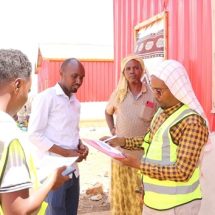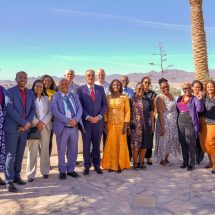Lusaka, 08 January 2014 (ECA) – In recognition of the need to review the country’s land governance and administration challenges the Government of Zambia will host a stakeholders meeting on 24 January in Lusaka, in partnership with the Economic Commission for Africa and the Land Policy Initiative and other partners. The meeting aims at coming to a common understanding of the land policy reform process in Zambia being spearheaded by the government.
The Government of Zambia has identified priority areas of reform or improvements, which include computerization of land records land information systems and land management. Further, the government wishes to see a new land policy and land law developed and finalized soon to provide an appropriate framework for governing and managing land, especially customary land that constitutes almost 90% of Zambia’s land.
According to the Land Policy Initiative, increasing investments is quite important to Zambia and the land reform process will aim to help Zambia achieve this objective.
Another priority stems from the high level of undocumented land through formal titles and the lack of a systematic land registration programme in the past. This situation has created gaps in documentation of land claims and rights. As such, the government is keen to see a land audit of all Zambia’s land conducted as a means towards establishing land rights, as well as arbitrating and resolving disputes.
Further, given the country’s vast forests, including indigenous forests, more needs to be done to improve forestry management so that it can contribute to the economic transformation and address challenges of deforestation, charcoal burning and illegal resettlements.
“Following the meeting, it is expected that the LPI will facilitate the participation of land policy experts from Zambia and the region to support Zambia’s efforts to review its land policy drawing lessons and best practices from other African countries which have experienced success in this regard,” said Joan Kagwanja from the Land Policy initiative at the Economic Commission for Africa.
Ms. Kagwanja notes that there will be multi-stakeholder consultations and engagement throughout the policy development process in accordance with the African Union Framework and Guidelines on land policy in Africa, which promote the need for a shared vision for land policy development; an assessment of underlying land related challenges; clarification and consideration of views and roles of all stakeholders in the land sector, and in particular, indigenous institutions, the land using public and civil society organisations.
The meeting will bring together stakeholders drawn from government, private sector, civil society, and research and academia as well as development partners.












